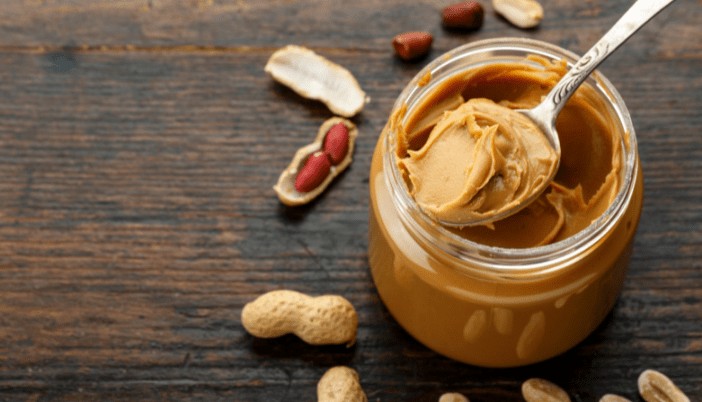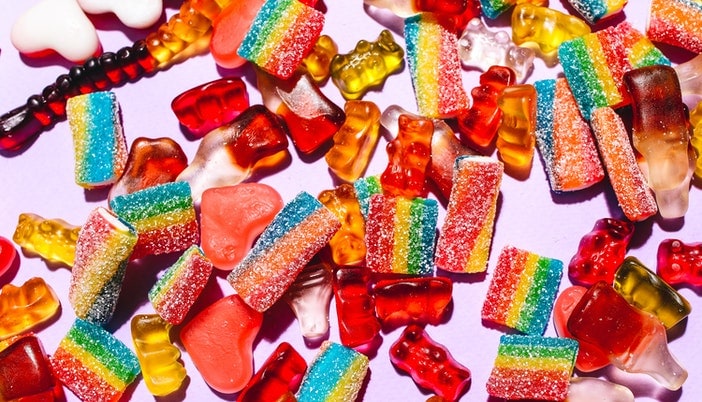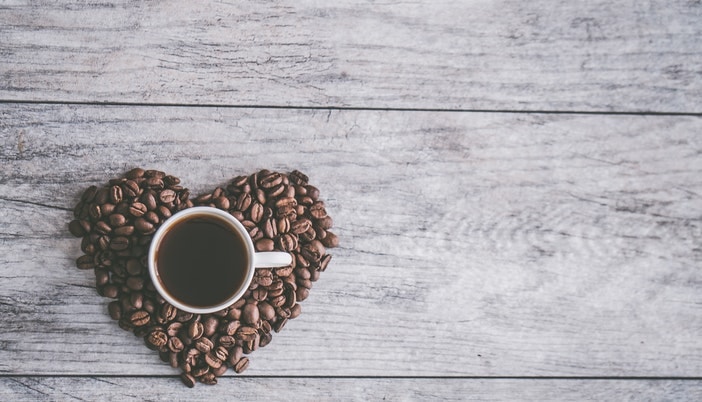Which Cereals Are Vegan in the U.K
Vegan cereal might seem at first a difficult find for those following a vegan diet. While there are some brands to watch out for, there are some reliable mainstays and good options for lifestyle vegans out there.
Like many different vegan foods, vegan cereal can sometimes be unexpectedly available and other times surprisingly not. Many animal byproducts are footnotes on ingredient lists that would be otherwise entirely vegan, and other times you may find products that are accidentally vegan on your average supermarket shelf.
More complicating to the issue is that many vegans take issue with products such as palm oil or mono-glycerides and di-glycerides, which other vegans may find acceptable. Many shopping choices will be dependent on the personal ethics and needs of the vegan buying them.
If you are wondering whether there are suitable options out there, however, there are plenty available in the UK market.
As an Amazon Associate, I earn from qualifying purchases. The links below may be affiliate links. Please read my disclosure policy for more information.
Is standard cereal vegan?
Most cereals are vegan. Since most vegans substitute cow’s milk for another type of milk derived from plant-based sources (or omit it altogether), the material itself is often perfectly suitable for those following a vegan diet and avoiding animal products.
However, some unexpected inclusions will make the product entirely non-vegan and should be watched out for. They can be obvious inclusions such as milk or lactose or more obscure like carmine and vitamin D3.
If you are new to veganism or want to know what to look for, this article will explore options available and how to make savvy decisions about what to buy.
How to know if cereal is vegan?
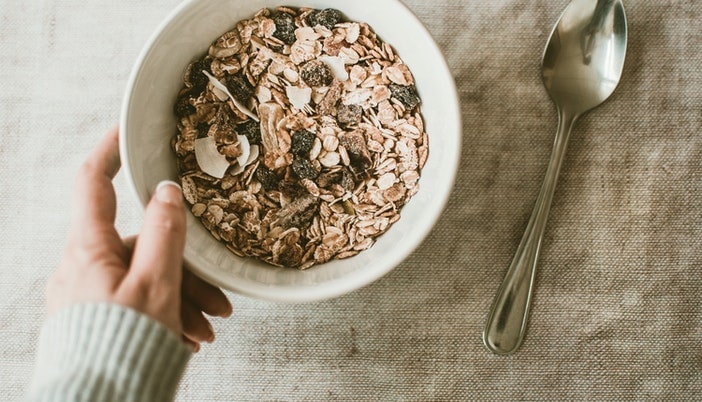
Often, vegan-friendly options will not be labelled with a “vegan-friendly” label. This is because frequently, cereals are manufactured along with other items that are not entirely vegan friendly.
Due to non-strict practices within a factory or manufacturing location, they cannot wholly guarantee a lack of cross-contamination. Many vegans feel it is acceptable to consume food that is potentially cross-contaminated.
Still, those with strict ethics or allergenic and dietary needs may err on the side of caution in these cases.
Products that state clearly that they “may contain” other products explain that they are likely produced in a factory that deals with other matter that could potentially cross-contaminate. This is rare and unlikely: but for those with severe allergies who avoid animal material, this could be a concern.
Is vitamin D vegan?
Vitamin D3 is most of the time not suitable for vegans. This is because most vitamin D3 is derived from lanolin, a moist, sticky bioproduct obtained from sheep’s wool by placing it into a centrifuge.
Lanolin is associated with many cruel practices towards sheep, such as routine bodily harm and abuse that many vegans find highly objectionable.
Vitamin D2, however, is derived from plants and is entirely suitable for those following a vegan diet. If the cereal is not explicit about the type of vitamin D used and simply states vitamin D, there is often no way to know.
Vitamin D3 is often the kind found in cereal, which is the generally non-vegan variety. If you are concerned and inclined to do so, contacting the manufacturer can sometimes resolve these issues if they have more accurate information to offer over the consumer line.
However, these are just judgment calls that vegans have to make much of the time without adequate information. For this reason, some vegans avoid all vitamin D-fortified cereals.
Is honey vegan?
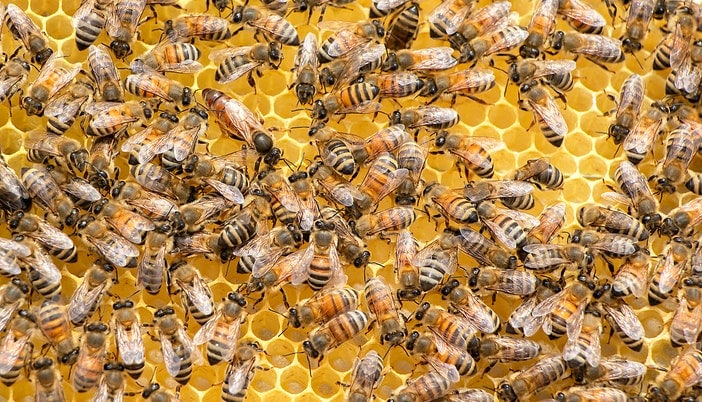
Although some vegans feel that eating honey is acceptable as part of a vegan diet, it is generally not considered to be. It is also a frustrating ingredient in cereals for many vegans, as it is included in many brands and is difficult to avoid.
Vegans choose to avoid honey because commercial honey production involves harm to bees. Bees are killed to increase output or honey is entirely removed from the hive, leaving bees susceptible to bees throughout the winter.
Some practices even include killing the hive over the winter as they can be expensive to keep alive.
As vegans avoid using animal products and animal byproducts, honey bees qualify in this category. Although vegans value animal life broadly, many vegans also note that honey bees are particularly social, experience mood, and communicate with one another to cooperate in a hive.
Are Kellogg’s Cornflakes vegan?
Kellogg’s as a brand often favour vitamin D in their products to fortify them and provide nutrition. This is because of recent health movements towards nutritious, healthy breakfasts.
With the fact that the NHS advises consumers in the United Kingdom to seek out further vitamin D, many breakfast cereals add additional vitamin D as a fortifying nutrient. However, as this is most likely sourced from lanolin, this is not suitable for vegans.
Kellogg’s Cornflakes does contain vitamin D, despite being a plain flavour. This means it is not suitable for those following a vegan diet.
Is Kellogg’s All-Bran vegan?

No. Kellogg’s Bran-based products explicitly use vitamin D3 derived from lanolin. Vegans avoid lanolin, so unfortunately this generally vegan product is not suitable for those following a vegan diet.
However, as a wheat husk, Bran is a fibrous and easy product to make at home. Vegans wishing to consume a bran product can buy bran flakes with no additives and add fruit, nuts, and plant-based milk to their liking to simulate this delicious vegan breakfast.
Is Crunchy Nut vegan?
Kellogg’s Crunchy Nut line is exceedingly popular, but not all of its offerings are suitable for vegans. Their main sell, Crunchy Nut, is notable for its peanut and honey flavouring.
The honey in the recipe makes it unsuitable for vegans, as well as the vitamin D it is fortified with.
Crunchy Nut Clusters contain milk and honey, and Crunchy Nut Clusters with Peanut Butter contain milk. This extends to the Granola line of products, with Crunchy Nut Granola Caramelised Hazelnuts and Crunchy Nut Granola, with both containing milk.
These are all unsuitable for those following a vegan diet. However, vegans might be relieved to hear a couple of cereals are available in the Crunchy Nut line.
Kellogg’s Crunchy Nut Granola Fruit & Nut is vegan-friendly, as well as their more specialised offering of Crunchy Nut Granola Pistachio and Dark Chocolate.
However, Kellogg’s as a company has been linked to contributing in an impactful manner to palm oil deforestation. As many vegans choose to avoid palm oil, this is something to look out for in Kellogg’s products, and vegans interested in investing their money in companies that do not contribute to these should look elsewhere.
Are Coco Pops vegan?
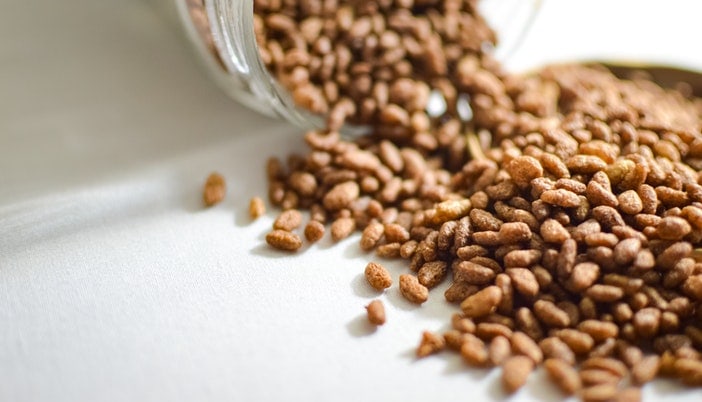
Kellogg’s Coco Pops are not vegan, as they contain vitamin D fortifications that are most likely derived from lanolin. However, they do not have milk, which means they may be suitable for those wishing to avoid that particular ingredient.
Is Nesquik cereal vegan?
Unfortunately not, but not for the reasons you might think. Nestle’s Nesquik cereal is not vegan as it contains vitamin D, which is most likely derived from lanolin; however, it does not contain any milk products.
If you suffer from severe allergies, however, the Nesquik cereal branding does state that it is at risk of cross-contamination, so in this situation, it is best to avoid this particular brand.
Is Cookie Crisp vegan?
Although Nestlé’s Cookie Crisp cereal does not contain any dairy products, despite being chocolate chip cookie-flavoured, it does, however contain vitamin D fortification, making it unsuitable for those following a vegan diet.
Are Cheerios vegan?
The majority of Nestlé’s Cheerios are not vegan, as they are fortified with vitamin D. However, those following a vegan diet may be excited to hear that the Cheerios Oat Low Sugar variety is vegan-friendly.
However, ethical vegans often take issue with Nestlé’s involvement in rainforest destruction, unsustainably sourced palm oil, and involvement in human rights abuses.
Is Special K vegan?
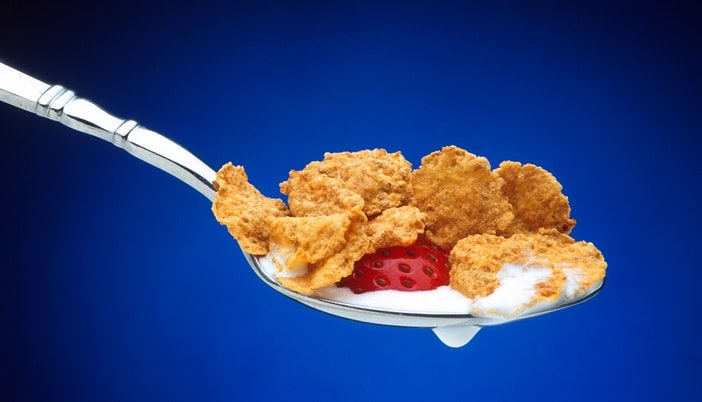
No. Both Special K and Special K Red Berries are not vegan; both of these include vitamin D fortifications, making them unsuitable for those wishing to ensure their food contains no animal byproducts.
Is Weetabix vegan?
Yes. There are several vegan-friendly Weetabix brands for those following a vegan diet, including but not limited to Weetabix Golden Syrup, Weetabix Organic, Weetabix Banana, Weetabix Chocolate and the regular flavour of Weetabix.
Weetabix also produces Oatibix and Oatibix Flakes. Both of these are vegan-friendly.
However, some Weetabix varieties should be avoided by those following a vegan diet because they include vitamin D, most likely sourced from animals. This includes Weetabix Crispy Minis Banana, Weetabix Crispy Minis Fruit and Nut, Weetabix Crispy Minis Chocolate Chip, Weetabix Crunchy Bran, Weetabix Chocolatey Hoops and Weetabix Protein.
Weetos, also produced by Weetabix, are not suitable for vegans either as they contain vitamin D.
Is Ready Brek vegan?
Ready Brek is unfortunately not vegan: it is fortified with vitamin D, meaning it most likely contains products derived from sheep’s wool lanolin.
Is Country Crisp vegan?
Yes. Country Crisp Chunky Nuts, Country Crisp Raisin, and Country Crisp Strawberry are all entirely vegan-friendly with no animal byproducts included.
Discerning ethical vegans will want to check the label for palm oil, however, as unsustainably sourced palm oil can contribute to habitat destruction and tangible animal and human harm.
Are Golden Nuggets vegan?
Unfortunately not. Nestlé’s Golden Nuggets contain honey, which is sourced from bees and contributes to potential harm to them as well as the destruction of their natural habitats.
Are Oreo O’s vegan?
Vegans may be surprised, or not, to see that Oreo O’s are suitable for vegans. Oreos themselves are suitable for vegans as well, which may surprise those that are new to following a vegan diet.
Are Quaker Rolled Oats suitable for vegans?
Yes. Quaker Rolled Oats are suitable for those following a vegan diet, as well as the flavours Quaker Oat So Simple Original, Oat So Simple Chocolate, and Oat So Simple Golden Syrup.
Are Simply cereals vegan?
They are vegan. This extends to Dorset Cereals’ Simply Delicious Muesli, Simply Fruity Muesli, Simply Oat Granola, and Simply Nutty Muesli.
Are Rice Krispies vegan?
Unfortunately not. Rice Krispies Multigrain Shapes are also not vegan due to the inclusion of vitamin D that cannot be verified as being from a vegan source.
Are Frosties vegan?
Kellogg’s Frosties are not vegan, due to their inclusion of vitamin D that is sourced from sheep wool lanolin. However, Sainsbury’s offer a brand of Frosted Flakes that is not reinforced with vitamin D and is vegan-friendly.
Is Shredded Wheat vegan?
Yes, Nestlé’s Shredded Wheat is vegan. They also offer Shredded Wheat Bitesize, Shredded Wheat Red Berries & Vanilla, Shreddies, Shreddies Coco, and Shreddies Frosted.
However, vegans concerned with palm oil consumption may want to check the box for palm oil. Nestlé also has historic involvement with supply lines that cause deforestation and recently missed goals on reducing deforestation and palm oil usage, so vegans concerned with the environmental ethics of investing in Nestlé may want to avoid purchasing their products.
Are there other vegan cereals?
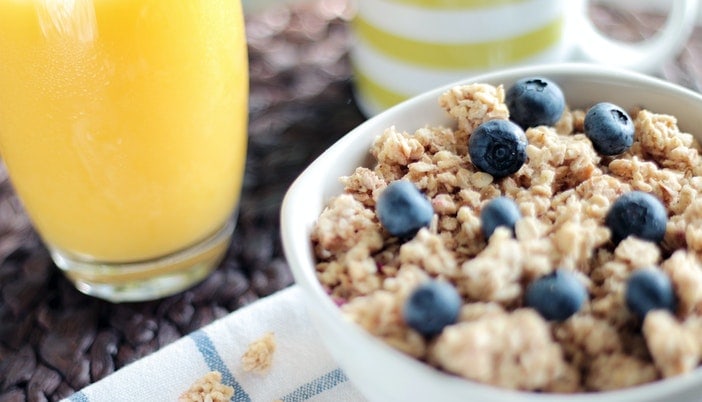
There are undoubtedly other vegan cereal brands available across the market in the UK, as supermarkets offer their own-brand versions of meals and smaller cereal brands pop up across the country all the time.
If you are interested in a particular brand, look for potentially problematic ingredients such as vitamin D (particularly vitamin D3), honey, and milk on ingredient lists.
If you are deficient in vitamin D, it is best to obtain supplements separate from food fortifications. They are more likely to be effective when taken with instruction from your doctor.
However, many vegans decide that it is difficult and uncertain to avoid vitamin D and choose to consume it. This is a personal and ethical choice for those following a vegan diet, and there is no one way to follow the lifestyle.
Whatever helps you make the best decisions for yourself is the right choice.















